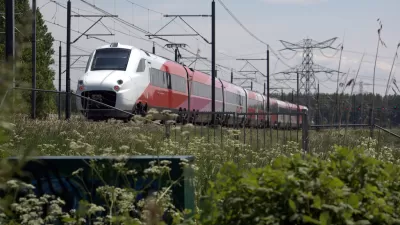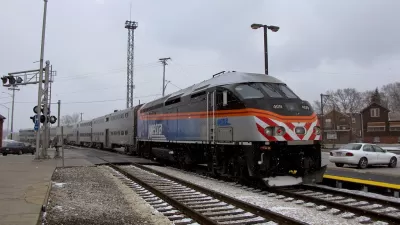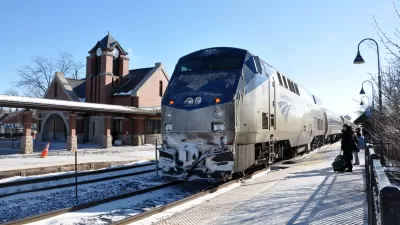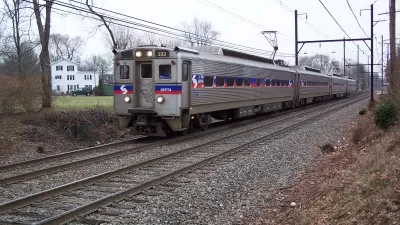If jobs, services, and other urban amenities are concentrated downtown, suburbanites can use transit to get there quickly without a car. Job sprawl makes transit useless outside central districts.

In cities with centralized job hubs like Chicago and Philadelphia, robust commuter transit makes it possible for suburbanites to go there and back again without a car. Daniel Hertz argues that centralizing urban amenities is the most effective way for cities to capitalize on transit.
Hertz writes, "suburbanites who take public transit to work are actually richer on average than suburbanites in the same neighborhoods who drive. Why is that? Because in places where high-end jobs are concentrated downtown, those high-end earners can take convenient express buses or commuter rail to work [...] If the urbanite works in the suburbs, she almost certainly drives; and if the suburbanite works downtown, there's a good chance he takes the train."
Looking at data from the 2013 American Community Survey, Hertz concludes that "what really matters for how you get to your job, even more than where you live, is where you work." While most suburbs are obviously ill-served when it comes to transit, planning for centrally-located jobs and services will make new commuter rail and buses a more attractive option.
FULL STORY: When it comes to transit use, destination density matters more than where you live

Maui's Vacation Rental Debate Turns Ugly
Verbal attacks, misinformation campaigns and fistfights plague a high-stakes debate to convert thousands of vacation rentals into long-term housing.

Planetizen Federal Action Tracker
A weekly monitor of how Trump’s orders and actions are impacting planners and planning in America.

Chicago’s Ghost Rails
Just beneath the surface of the modern city lie the remnants of its expansive early 20th-century streetcar system.

Bend, Oregon Zoning Reforms Prioritize Small-Scale Housing
The city altered its zoning code to allow multi-family housing and eliminated parking mandates citywide.

Amtrak Cutting Jobs, Funding to High-Speed Rail
The agency plans to cut 10 percent of its workforce and has confirmed it will not fund new high-speed rail projects.

LA Denies Basic Services to Unhoused Residents
The city has repeatedly failed to respond to requests for trash pickup at encampment sites, and eliminated a program that provided mobile showers and toilets.
Urban Design for Planners 1: Software Tools
This six-course series explores essential urban design concepts using open source software and equips planners with the tools they need to participate fully in the urban design process.
Planning for Universal Design
Learn the tools for implementing Universal Design in planning regulations.
planning NEXT
Appalachian Highlands Housing Partners
Mpact (founded as Rail~Volution)
City of Camden Redevelopment Agency
City of Astoria
City of Portland
City of Laramie





























